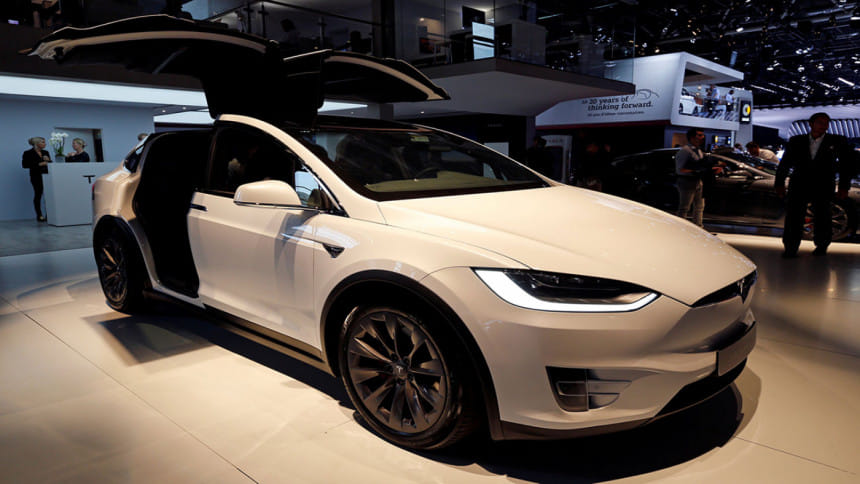China has agreed to cut tariffs on US-made cars: Trump

US President Donald Trump said on Sunday that China had agreed to cut import tariffs on American-made cars, a potential boon for automakers including Tesla Inc and BMW who manufacture in the United States for export to China.
Trump, fresh from agreeing a 90-day cease-fire in his trade war with China at the meeting of the G20, said on Twitter that "China has agreed to reduce and remove tariffs on cars coming into China from the US Currently the tariff is 40%."
The move, if realized, would bolster US car manufacturers who were hit hard when China ramped up levies on US-made cars in July as part of a broad package of retaliatory tariffs amid a sprawling trade war between Washington and Beijing.
China, the world's largest auto market, raised tariffs on US auto imports to 40 percent in July, forcing many carmakers to hike prices in a major hit to the roughly $10 billion worth of passenger vehicles the United States sent to China last year.
That put US-made car brands like Tesla and Ford Motor Co's Lincoln at a major disadvantage, soon after China slashed auto import tariffs broadly to 15 percent for most vehicles.
Trump's tweet did not give any further detail about the tariff cuts, such as when the deal had been reached or a new level for the Chinese levies.
The White House and US Trade Representative's (USTR) office did not immediately respond to a request for comment late on Sunday. China's commerce and finance ministries did not respond to requests for comment on Monday.
After a 2-1/2 hour dinner with Xi on Saturday in Buenos Aires, Trump agreed to postpone an increase in the tariff rate on $200 billion worth of Chinese imports to 25 percent from 10 percent that was scheduled for Jan. 1. China agreed to resume purchases of some US farm and energy commodities.
The two sides also agreed to negotiate during the next 90 days over "structural changes" to China's policies on technology transfers, intellectual property protection, non-tariff barriers, cyber intrusions and cyber theft, services and agriculture.
Major US automakers said they were unaware of the lower tariffs on exports to China. The automakers have a previously scheduled meeting with USTR on Monday, two people briefed on the matter told Reuters.
The lower tariffs would be a boost to automakers exporting vehicles to China, including Ford and German carmaker BMW, which exports US-built luxury vehicles to China.
It would also be good news for Tesla, which has been hit hard by increased tariffs on the electric cars it imports to China. The US firm has said it will cut prices to absorb more of the tariffs and is building a local plant in Shanghai.
While China had lowered its general tariff rate for imported cars to 15 percent from 25 percent this year, it had slapped on a 25 percent punitive tariff on American-made vehicles, bringing the rate back up to 40 percent. The United States currently charges tariffs of 27.5 percent on Chinese vehicles.
On Wednesday, US Trade Representative Robert Lighthizer said Trump had directed him to examine all available tools to raise US tariffs on Chinese vehicles to the level that China is charging.

 For all latest news, follow The Daily Star's Google News channel.
For all latest news, follow The Daily Star's Google News channel. 








Comments